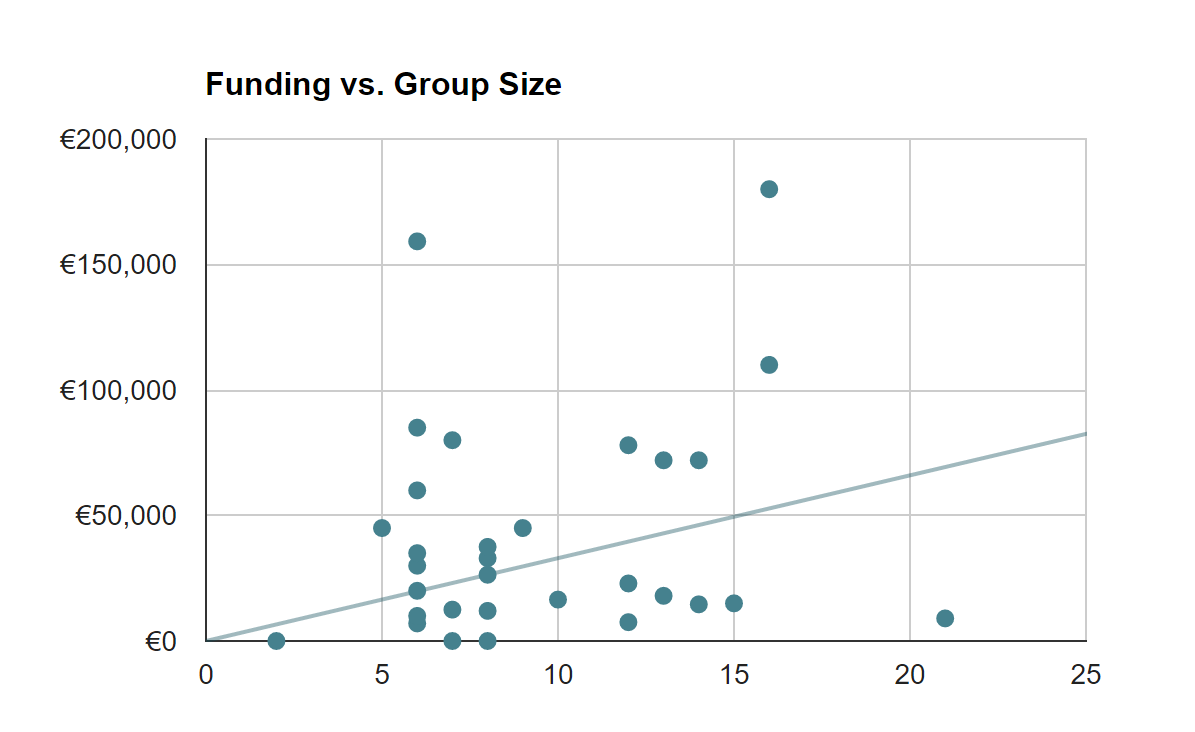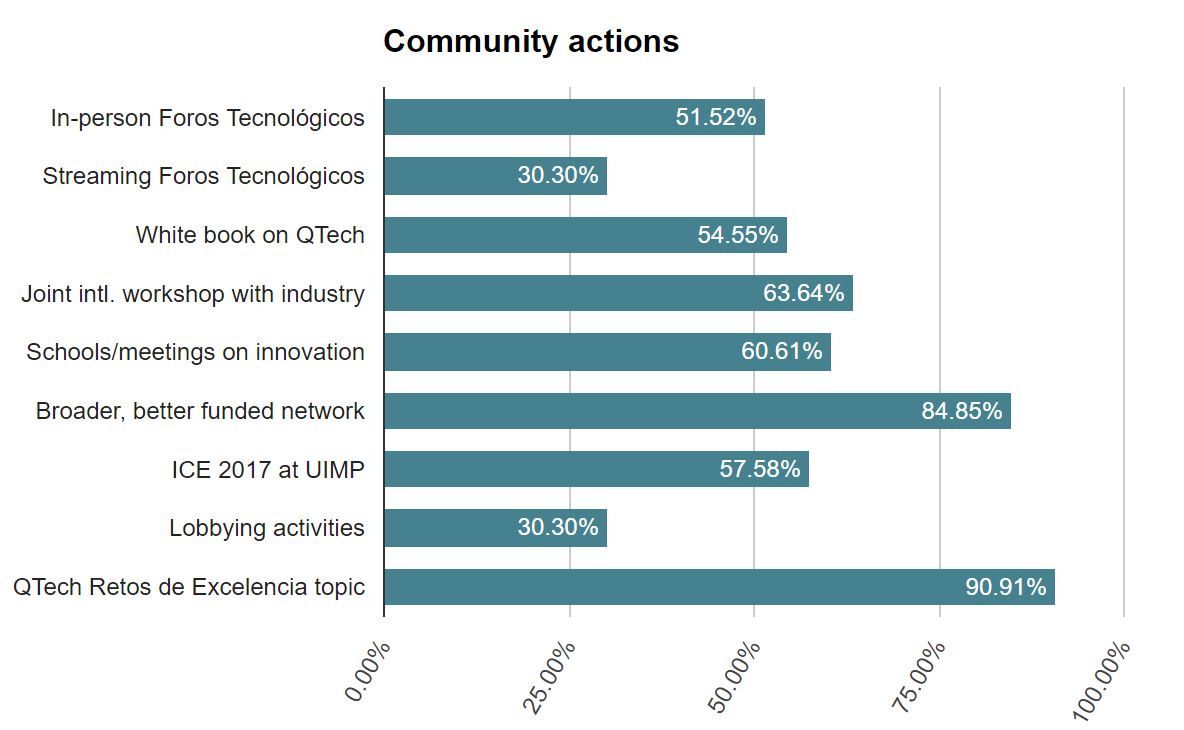What follows is a summary of the results from a poll on the community of quantum technologies in Spain, which covers all of the groups in the RICE network, as well as other groups who did not feel completely identified with our network denomination, but have a strong scientific overlap. The poll is limited in its scope and depth, but it offers sufficient information to do a thorough analysis of the community and its state. It is for this reason that I would like to thank all participants for their collaboration and hope that this document be useful for a productive discussion in 2017. Finally, note that the text below arises entirely from my personal analysis of the data and does not reflect any policy or view from neither the network, nor my employers.
Juan José García Ripoll
January 2017
Group composition and topics
Our network, RICE, was born with the words “Quantum Information” in it, but it has always been a collection of groups working in overlapping topics, such as quantum computing, quantum simulation, quantum sensing… In essence, what is nowadays known as “quantum information technologies”: a more inclusive denomination that includes all technologies that benefit from quantum effects, such as entanglement, squeezing, etc.
Understanding this, the poll consulted all participants using the broader list of topics which are included both in the Quantum Manifesto as well as in the Quantum Roadmap. The outcome is as follows:
As evident from the chart, research in Spain covers a variety of topics –basically all from the roadmap. However, many of those topics are covered by more groups working in theoretical aspects (60%), than in experiments (40%).
It is also important to remark the large number of groups that work in the so called enabling technologies, which are setups (photonic crystals, lasers, quantum dots, etc) that are essential for developing QT, but which are not converted into QT setups in those groups. This is a potential that should not be underestimated, both for growth and consolidation of QT in Spain, but also because any of those technologies have very short-term applications in the productive and economic system.
Finally, QT has also overlap with a broad variety of communities, all of which are represented in RICE.
Figures: funding, staff, etc.
The following analysis focuses exclusively on national funding. We believe that a strong national support is essential for international competitiveness, specially now that Europe is adopting a new, global strategy that distinguishes between focused efforts, productive economy and basic science (the latter being mostly a responsability of the member states).
In Spain, national funding happens mostly through the Plan Estatal de Investigación, wich funds three-year projects that are broad, sometimes supporting whole departments. However, the poll was explicit in requesting real figures of all national funding that is actually devoted to topics in the Quantum Manifesto or Flagship topics, as well as providing details on the size of the groups, distinguishing between permanent and temporary positions.
The scatter plot of the 33 groups which contributed to the poll shows a wide dispersion of funding averages, but a more detailed analysis shows a somewhat worrying picture.
|
Total |
Theory |
Experiments |
| Staff |
90 |
46 |
44 |
| Postdocs & PhDs |
247 |
145 |
102 |
| Groups |
33 |
58% |
42% |
| Funding per year |
€1,400,000 |
€800,000 |
€600,000 |
| Average per staff (permanent) |
€16,000 |
€18,000 |
€13,000 |
| Average per researcher (all) |
€4,000 |
€4,000 |
€4,000 |
| Desired total funding |
€3,900,000 |
€2,300,000 |
€1,600,000 |
| Desired avg. per staff |
€42,000 |
€49,000 |
€35,000 |
In this picture, all groups have a very low average funding per researcher. This implies that national fundeing cannot really sustain even a 12% of the personnel costs. This image is also consistent with the fact that many of the groups above depend on international funds for 50% to 80% of the costs, an unsustainable situation.
Equally worrying is the fact that experimental funding is worse than theoretical one. We have seen above the lack of experimental groups in key areas, such as quantum communication, simulation and computing. This is due to the fact that national funds cannot sustain stable, long term research in these fields with a funding as low as 13k€ per staff.
Indeed, it is not uncommon in these calls to see the budget of a complete experiment be cut but 40% or 60%, implying that the experimentalist has to find the remaining funds elsewhere. Such a situation is not consistent witha picture of “finalist” projects to achieve specific goals, but with a view of funding as “core funding”, or minimal resources for subsistence.
Activities
We also have made a brief poll on activities that should be pursued by the network. Some of the ideas had already been discussed either in RICE’s meetings or in the meetings sponsored by the Spanish Secretary of Science and Innovation (So called Foros Tecnológicos). The obvious winners in support are (i) a joint network or some other coordination instrument and (ii) promoting quantum technology to its own strategic research topic within the Retos program.
We expect that RICE, or its successor, will be able to fulfill partially this list and expect that those who declare some interest will help us in doing so.





